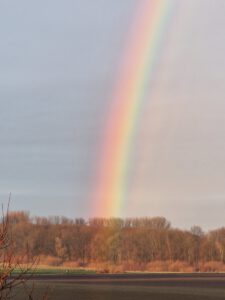Adaptability is an essential part of resilience. It’s the conversation within you between stability and change. It’s the marriage of your fundamental needs for security and adventure. Adaptability is the ability to bend and come back to centre over and over again, increasing our flexibility each time, whether you’re in your daily stretch or the fight for your life. And the more you practice becoming adaptable, the more you can tolerate change and harness its power. To ensure that we can continue to do our work well, it’s crucial that we cultivate flexibility, nimbleness, and adaptability as key skills for meeting this moment. To remain stable emotional supports for our clients, we need to know how to bend without breaking.
Esther Perel
It’s not the note you play that’s the wrong note, it’s the next note that you play that determines if it’s good or bad.
Miles Davis
The culture in which I grew up was one of rigidity. While the Ireland of the 1960’s and 70’s was growing the first green shoots of transcending the narrow bounds which had ruled it for at least a century, the catholic church still held a firm grip on the mores and values of society, had the power to dictate what was acceptable and what not, and to silence or eject anyone who transgressed these boundaries and those who voiced criticism of the status quo.
We grew up convinced that it was a mortal sin not to go to church on Sunday. The consequences were clear; eternal damnation to hell, a place where fires burned incessantly with no hope of redemption or respite. What a frightful notion for a young heart and mind. That was precisely the point; keep the children sufficiently frightened and they will do the bidding of the incumbents of power and their lackeys. That was the logic of the approach.
One day, however, at the age of eleven or twelve, I left home on a Sunday evening, ostensibly to go to evening mass, but with the conscious intention of putting the contention to the test. Honestly, I waited for a while, petrified, for a bolt of lightning to strike me from the heavens. When that did not occur, there was a great sense of relief. My adventure could now really begin!
My parents had been educated in catholic schools in the thirties and forties. It is difficult to imagine that there was anything more rigid that that which my generation experienced, yet from what I have heard, it seems that it may have been even worse for them. A cousin, twenty years my senior, told me of an incident he had experienced in the late fifties. He had come to Ireland to study law; from Southern Africa where he had spent much of his childhood. His Irish sojourn involved staying with our paternal grandmother at her farm down the country from time to time. When said cousin announced one day that he was going to accept an invitation of a certain family for a weekend of hunting and angling, Granny immediately asked: `Where are you going to stay?´ My cousin was a little perplexed and repeated the family name of his host. `Yes, but where are you going to stay?´ Granny asked once again, this time her voice clearly somewhat terse. `At the Smyths´, replied the young man, growing in exasperation. Granny, now aghast, blurted out: `But they’re protestants!´
This story, related to me less than ten years ago while visiting this now elderly cousin in Johannesburg, was useful because it helped me appreciate the context in which the foundation of my family of origin was laid. It enabled me to develop compassion; for my parents who grew up in a culture drenched in the narrows of bigotry and sectarianism, and for myself and my siblings, as we attempted to break free of the constraints, – moral, legal, emotional, and spiritual – which the institutions of family, church, and state were still vigorously attempting to apply and reinforce in the throes of the counter-cultural eruptions of our formative years.
The drive for adventure was sufficient in my case to enable me to take risks and thus discover that what had been presented as moral dicta were simply illusions which, like demons, lost their grip and power once they were exposed to the light of experience. When no longer focussed on the bars of the prison window, we get a glimpse of promise of the endless sky beyond.
Later in life, when my children were very young, I was pained by the memory of the fear that played a part in my relationship with my beloved father, and so decided to avoid this scenario with my own children. Easier said than done! That same unpredictability, irritability and severity I had perceived in his behaviour at times would rise to the surface of my behaviour when interacting with my children, despite my best intentions.
As with other challenges during this period of fatherhood, I sought help among those who had more life experience, hoping they could perhaps help me avoid pitfalls, discover resources which would help me improve my capabilities, and put them into practice.
What quickly became apparent was the severity with which I was inclined to treat my self. `Don’t be so hard on yourself´! I remembered hearing often in my youth. And now the subject was beckoning my attention once again. Softening up would require having more compassion for the child within me, that boy who still nursed wounds of ridicule, neglect and loss. It would, in turn, yield more play, wonder and spontaneity. This newly-unleashed creativity was a good start.
Then I had the good luck to meet a teacher steeped in the spirit of Zen. He took me on a walk one summer’s afternoon. When we came to the shore of a nearby river, he pointed to the rushes standing in the water. `It’s like this´, he said. `We need to be sturdy, so that we do not snap; able to withstand the turbulence of the water currents and the gustiness of the wild winds. At the same time we need to be flexible enough to bend with these forces of life while remaining firmly grounded.´
Such a beautiful metaphor! It helps me in times of stress, both in my interactions with others and in my internal dialogue. Learning to take into consideration both the `what´ and the `how´ of each situation, I have learned that without addressing the `how´, we can swap out the `whats´ and still despair of causing precisely that pain that we were intent on avoiding, even if the replacement `what´ appeared far more noble than that which it replaced.
The greeting `how are you´? has taken on new meaning, for it is indeed the how which determines the flavour on each interaction. Today I live in acceptance of what is; at least this is my aspiration and the focus of my cultivation, one day at a time. In this new spirit, it is easier to stand tall in the turbulence of life, being present, being creative, and experiencing with clarity – without the impulse of having to insist on others doing exactly the same.
It is called: `Live and let live´.








Eine Antwort
Yes, that describes very well what it was like for me growing up in that same Ireland. I still haven’t fathomed those depths, though they preoccupy me continuously. I can’t blame or use these events as a cop out of responsibility, but I sometimes wonder if I have not been deprived of the joy of belief by those formative years